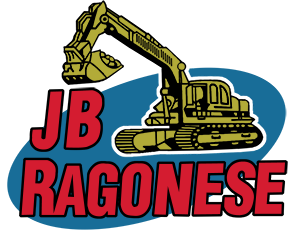Introduction:
Regular plumbing inspections are an often overlooked but essential component of home maintenance. While many homeowners only reach for the phone when a plumbing crisis strikes, proactive preventative maintenance can save money and protect your home from costly damage. In this blog post, we will explore routine plumbing inspections’ significance, advantages, and best practices for scheduling and conducting them.
Why Are Regular Plumbing Inspections Important?
1. Prevention of Costly Repairs:
Regular plumbing inspections are crucial in identifying potential issues before they escalate into expensive repairs. Timely detecting problems can help avoid costly water damage and extensive repair bills.
2. Health and Safety:
Faulty plumbing systems can pose health and safety hazards. For example, leaking pipes can foster mold growth, leading to respiratory problems. Routine plumbing inspections are essential for identifying potential risks and ensuring your family’s safety.
3. Improve Energy Efficiency:
Outdated plumbing systems can be wasteful, resulting in high water bills. Regular inspections can pinpoint inefficient systems and help enhance your home’s energy efficiency.
4. Peace of Mind:
Knowing that your plumbing system is in excellent working condition can provide peace of mind. You can rest assured that your home is safe, and you won’t be caught off guard by unexpected plumbing emergencies.
Benefits of Regular Plumbing Inspections
1. Detect Problems Early:
Regular plumbing inspections help detect issues in their infancy, making resolving them more manageable and less expensive. For instance, promptly addressing a slow leak is more cost-effective than waiting until it becomes a significant problem.
2. Improve Efficiency:
Routine inspections can reveal ways to boost your plumbing system’s efficiency. Simple upgrades like installing low-flow fixtures can significantly save your water bill.
3. Increase Fixture Lifespan:
Inspecting your fixtures regularly allows you to identify problems early and repair or replace them before they fail. This prolongs the lifespan of your fixtures and saves you money over time.
4. Protect Your Investment:
Your home is likely your most substantial investment. Regular plumbing inspections safeguard your investment by ensuring your plumbing system operates optimally.
Best Practices for Scheduling and Conducting Plumbing Inspections
1. Schedule Inspections Annually:
It’s advisable to have your plumbing system inspected at least once a year. Annual inspections help catch potential issues early and ensure your system remains in top-notch condition.
2. Hire a Professional:
While some plumbing tasks can be DIY, such as changing a faucet, it’s best to enlist the expertise of a professional for plumbing inspections. A certified plumber possesses the necessary tools and knowledge to spot potential problems and recommend repairs or upgrades.
3. Check for Leaks:
During a plumbing inspection, the plumber will examine your system for leaks. This includes checking faucets, toilets, and pipes for any signs of leakage.
4. Assess Water Pressure:
Low water pressure can indicate an underlying plumbing problem. During an inspection, the plumber will assess your water pressure and provide recommendations for improvement if necessary.
5. Examine Drains:
A thorough inspection includes checking your drains for clogs and ensuring proper water flow.
Conclusion:
Regular plumbing inspections are integral to home maintenance, offering substantial cost savings and protection against severe damage. Routine plumbing inspections deliver numerous benefits by promptly addressing potential issues, improving efficiency, extending fixture lifespans, and safeguarding your investment. Adhering to best practices, such as scheduling annual inspections, hiring professionals, and vigilantly checking for leaks, water pressure, and drain performance, ensures your plumbing system operates effectively and provides peace of mind.
Be sure to contact a plumber before a plumbing crisis strikes. Invest in regular inspections to maintain an efficient and safe plumbing system. While it might seem like a small expense in the short term, it can yield significant savings and prevent costly repairs in the long run. Contact a reputable plumber today to schedule your next plumbing inspection and take the first step toward securing your home’s plumbing system.

